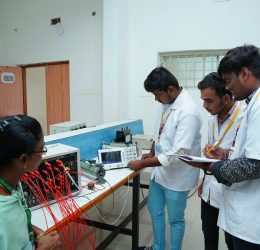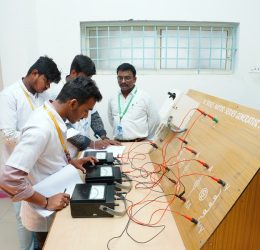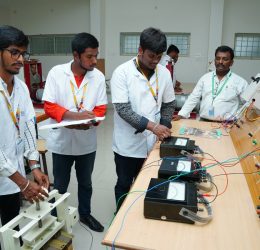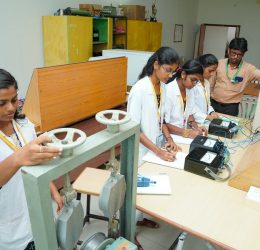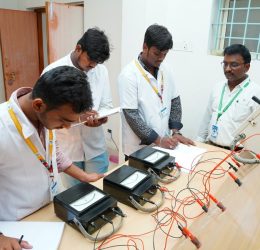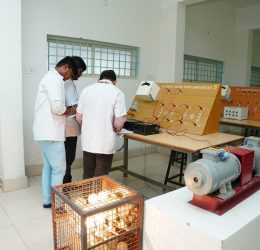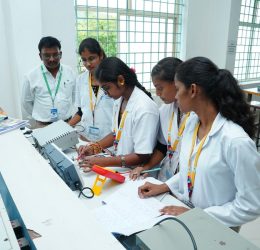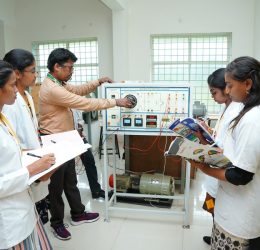The Electrical and Electronics Engineering Department was established in the year 2008. The department is running with well-qualified dedicated and experienced faculty. The faculty guides the students through the annals of this discipline which is multi-faceted covering various fields, to name a few, Electrical Machines, Power Systems, Electrical Measurements, Power Electronics, and Control systems. The present intake of students for B.Tech. program is 45. The department is equipped with eight well-established labs that give hands-on practical knowledge in the subjects.The laboratories are well equipped and sufficiently staffed for the applications of the theories to satisfy the curiosity of the students. The department consists of Electrical Mechanics Lab, Networks Lab and Control Systems Lab & Power Electronics & Power Systems Lab. The department initiates all student chapter activities of the Institution of Electrical and Electronics Engineers – IEEE, which is a global authority on the standardization of all aspects of Electrical and Electronics Engineering.
VISION:
To be the premier center of excellence in Electrical and Electronics Engineering and to produce globally competent engineers with values and ethics.
MISSION:
PROGRAMME EDUCATIONAL OBJECTIVES (PEO)
After the completion of the Program, the graduates of B. Tech. (EEE) will be able to
PROGRAM OUTCOMES (PO)
On successful completion of the Program, the graduates of B. Tech. (EEE) Program will be able to:
PROGRAM SPECIFIC OUTCOMES (PSO)
On successful completion of the B. Tech. (EEE) Program, the graduates will be able to





